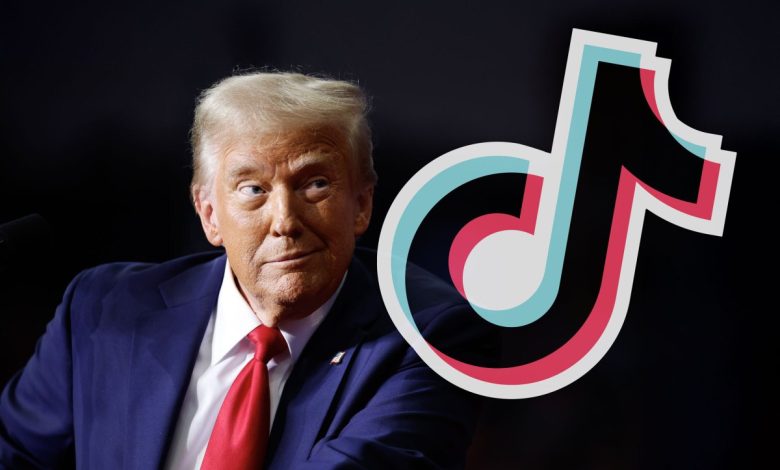Trump’s FCC pick has said he wants to ban TikTok, challenge Section 230

Although president-elect Donald Trump has been anticipated to cease the looming ban on TikTok, his political appointments recommend in any other case.
Trump introduced on Sunday that he chosen Brendan Carr to chair the Federal Communications Fee (FCC), which regulates the web, information media, and different types of communication. Carr, whom Trump appointed to the FCC in 2017, authored the Heritage Basis’s Venture 2025 chapter on the fee, the place he outlines an agenda that’s typically at odds with the president-elect’s guarantees.
“TikTok poses a critical and unacceptable danger to America’s nationwide safety,” Carr wrote in Venture 2025. “It additionally gives Beijing with a possibility to run a overseas affect marketing campaign by figuring out the information and knowledge that the app feeds to thousands and thousands of Individuals.”
Whereas there has not been public proof of the Chinese language authorities accessing American TikTok customers’ knowledge, there was proof that ByteDance, TikTok’s Chinese language dad or mum firm, has accessed TikTok consumer knowledge.
Trump’s present positioning to reverse the TikTok ban is shocking, on condition that he signed an government order to primarily ban the app in 2020, on the finish of his first time period. However after Joe Biden took workplace, Trump’s government order grew to become moot. Nonetheless, the federal government beneath Biden ended up arriving at an identical conclusion, the president signed a invoice that may power TikTok’s dad or mum firm ByteDance to promote the app, though the Chinese language conglomerate is unlikely to conform.
“With out TikTok, you can also make Fb larger, and I take into account Fb to be an enemy of the folks,” Trump instructed CNBC in March. He shared this sentiment on Fact Social as nicely, the place he claimed that Mark Zuckerberg’s firm is “a real enemy of the folks.”
In his assertion on Carr’s appointment, Trump doesn’t handle their obvious variations.
“Commissioner Carr is a warrior at no cost speech and has fought towards regulatory lawfare that has stifled Individuals’ freedoms, and held again our financial system,” Trump wrote.
Carr’s concern about Chinese language affect extends to the sale of Chinese language communications gear, like cellphones. Because it stands, Chinese language {hardware} firm Huawei can’t promote gear within the U.S. with out FCC approval, and Carr thinks that the FCC must be extra vigilant about assessing merchandise from Chinese language producers. He even needs to speculate an additional $3 billion into the “rip and exchange” program that reimburses communications suppliers for changing gear from Huawei and ZTE, one other Chinese language firm making telecom gear.
Whereas Carr has taken a largely deregulatory strategy to the FCC, he’s adamant about imposing elevated restrictions on tech corporations.
“We should dismantle the censorship cartel and restore free speech rights for on a regular basis Individuals,” Carr wrote on X. Fellow Trump appointee Elon Musk replied, “Based mostly.”
This place extends to Part 230, part of the Communications Decency Act that, amongst different issues, protects suppliers of on-line companies — like social media networks — from being held chargeable for the user-generated content material they host. So, if somebody posts one thing illegal on a social media app, the consumer is answerable for potential repercussions, not the app. Part 230 additionally permits on-line organizations to take away and average materials posted by third events.
Organizations just like the Digital Frontier Basis argue that overturning this bipartisan laws, which has existed for over 25 years, may very well be a menace to free speech on the web.
“With out Part 230’s protections, many on-line intermediaries would intensively filter and censor consumer speech, whereas others might merely not host consumer content material in any respect,” the EFF wrote. “This reinforces the First Modification’s protections for publishers to resolve what content material they may distribute.”
However Carr is pushing for Part 230 reform on the grounds that it permits social media platforms to “drive various political viewpoints from the digital city sq..” He believes that the FCC ought to work with Congress to guarantee that “web corporations not have carte blanche to censor protected speech whereas sustaining their Part 230 protections.”
Part 230 has confronted authorized challenges on the Supreme Courtroom stage, however has not but been topic to main reforms. Final 12 months, the Supreme Courtroom dominated in favor of Twitter and Google in two adjoining circumstances that sought to carry the platforms accountable for internet hosting content material from the Islamic State that promoted the terrorist group in connection to violent assaults.
The identical Supreme Courtroom that presided over these circumstances will stay in management for the foreseeable future, and it’s potential that they might hear extra challenges to the web legislation within the coming years.








